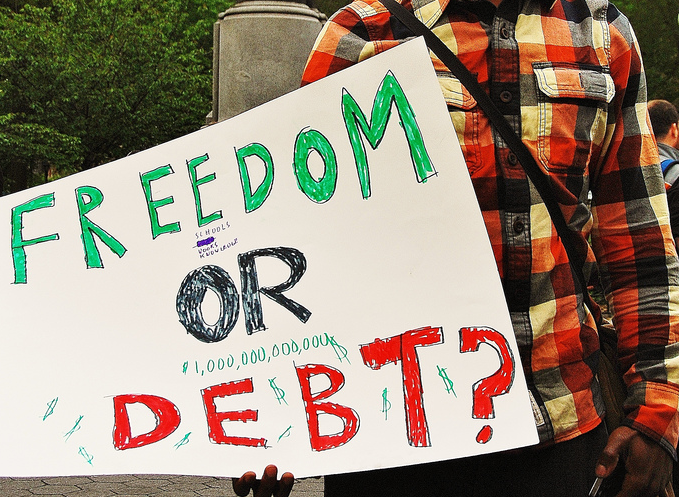Senators Introduce Legislation To Make Private Student Loans Dischargeable In Bankruptcy
Since 2005, student borrowers have been unable to discharge their private student loans through the process of bankruptcy. But that could soon change after a group of 12 senators introduced a bill aimed at addressing the current student debt crisis by restoring the bankruptcy code to hold private student loans in the same regard as other private unsecured debts.
The Fairness for Struggling Students Act of 2015 [PDF] would amend the current bankruptcy code, restoring the availability of bankruptcy relief for private student loans.
The act, which was introduced by Illinois Senator Dick Durbin, and co-sponsored by senators Sheldon Whitehouse (RI), Al Franken (MN), Richard Blumenthal (CT), Patty Murray (WA), Jack Reed (RI), Elizabeth Warren (MA), Ron Wyden (OR), Barbara Boxer (CA), Tim Kaine (VA), Brian Schatz (HI), Kirsten Gillibrand (NY) and Mazie Hirono (HI), aims to address the current student debt crisis, which has propelled student loan debt to more than $1.2 trillion.
Currently, student loan debt averages $29,000 for borrowers leaving school with a Bachelor’s degree.
“Too many Americans are carrying around mortgage-sized student loan debt that forces them to put off major life decisions like buying a home or starting a family,” Durbin says in a statement. “It’s not only young people facing this crisis, it is parents, siblings and even grandparents who co-signed private loans long ago and are still making payments decades later. It’s time for action. We can no longer sit by while this student debt bomb keeps ticking.”
While allowing private student loans to be dischargeable in bankruptcy might seem like a dramatic measure, the impact would be rather small when looking at total student loan debt in the United States. Private lenders only hold about 10% to 15% of all student loan debt; the rest is held by the U.S. Education Department.
Prior to 2005, only government-issued or guaranteed student loans were protected from discharge during bankruptcy.
That changed when the bankruptcy code was revised to include a provision making private student loan debt nondischargeable in bankruptcy except in extreme circumstances. Other debts such as money owed on mortgages, credit cards and auto loans can be discharged in bankruptcy.
Consumer advocates have long said the prohibition of discharging student debt in the case of bankruptcy is keeping borrowers buried under high debt burdens that they have little chance of digging themselves out of.
Although federal student loans would not be affected by the recently introduced measure, the President earlier this week directed federal agencies to explore whether those loans should also be dischargeable.
In addition to providing financial relief to students, senators say the act would discourage private lenders from extending risky loans in the future.
As Rising Student Loan Debt Nears $1.2 Trillion, Durbin Introduces Legislation To Address Crisis [Durbin]
Want more consumer news? Visit our parent organization, Consumer Reports, for the latest on scams, recalls, and other consumer issues.


